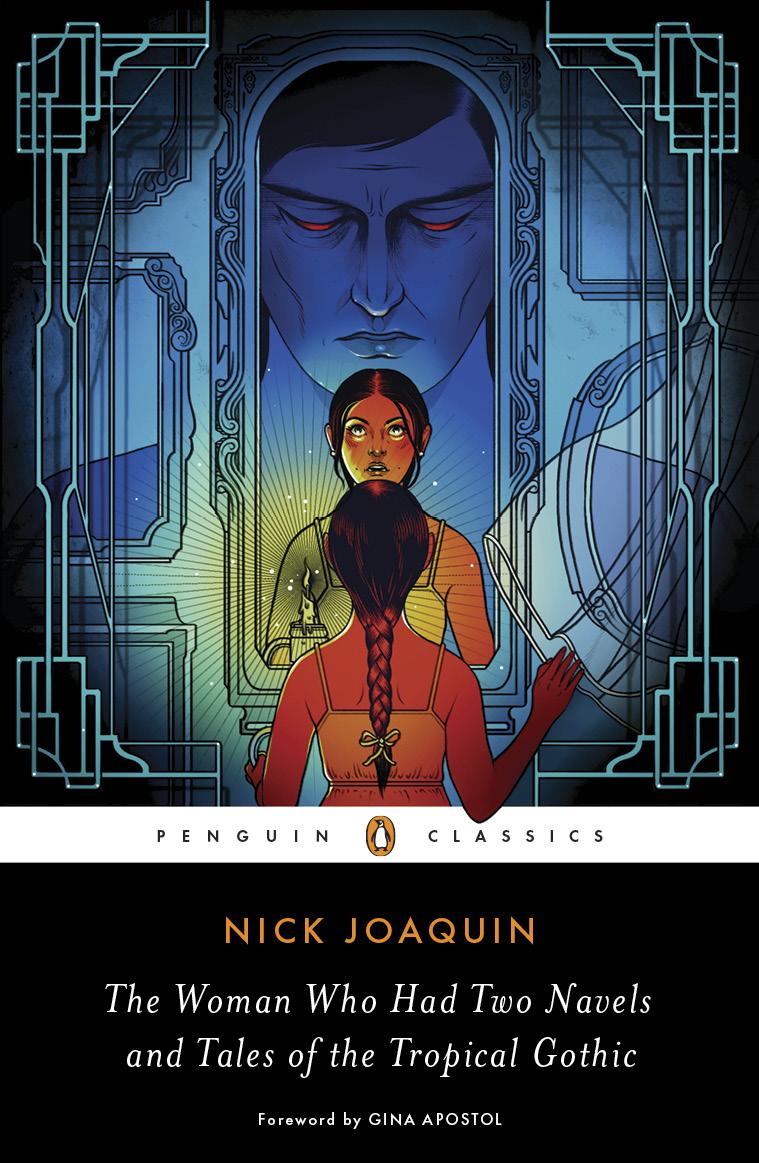Nick Joaquin and Filipino writers as enchanting reads, not tedious textbooks
We typically first encounter Nick Joaquin as required reading, either in high school or in college — and what a great shame that is. Instead of meeting the stories he wrote intimately, "Summer Solstice" and other great works are dissected instead of digested. Under an indifferent curriculum, an appreciation for one of the greatest figures in Philippine literary history is stunted.
Hope is resilient though, and with the Penguin Classics release of "The Woman Who Had Two Navels and Tales of the Tropical Gothic," we all get a chance to be reacquainted with Nick and his genius.
READ: First look at Penguin Classics’ cover for Nick Joaquin omnibus
On Thursday (April 7), GMA News Online had the privilege of joining a talk conducted by the man who wrote the introduction for the book, Dr. Vicente Rafael, at Manila House in Bonifacio Global City.
Prof Vicente Rafael talks about Nick Joaquin and the Penguin Classics release of a collection of his short stories pic.twitter.com/S6Fw0GdFPP
— Aya Tantiangco Miura (@ayaruim) April 6, 2017
Rafael, a professor of Southeast Asian history at the University of Washington, has written extensively on colonial and post-colonial Philippines, fueled in part by his interest in sharing his love for Philippine literature.
"Like all interesting ideas, [the idea to pitch Nick Joaquin to Penguin] came about during a dinner with a bunch of friends," Rafael revealed. In New York, Rafael, Gina Apostol and a few more individuals wondered, "How come there aren't more anglophone Filipino writers published in the US? Why do all the Indians have to have the fun?"
Acknowledging that the right elbows have to be rubbed in order to get far, Apostol and company got in touch with Fil-Am publisher Elda Rotor, who works as the vice president of Penguin Classics.
Joaquin's work speaks for itself and Rotor needed little convincing. All that she asked was that Rafael write the introduction and he understood the gravity of the task. "How do you talk about Nick Joaquin in ways that will make him resonate with non-Filipinos? Because that's always the problem when you're writing in the US."

Rafael has heard comparisons to Gabriel Garcia Marquez and other writers, but that approach is questionable. The similarities might be there, but Joaquin has his own voice.
"I think Nick is very unique. Part of my task is trying to situate his oeuvre and I thought I'd do that by talking about his ability to tell stories. I wanted to concentrate on the craft of Nick's writing — his being a storyteller — which I think cuts across all the genres, whether he is writing journalism, short stories, or historical pieces," Rafael explained. "I think one of the most interesting things where Nick excels really is in the act of storytelling."
In his introduction, Rafael brings Joaquin's brilliance to light by framing his work and techniques with Walter Benjamin's "The Storyteller."
The short version of the dilemma presented in Benjamin's essay is that "the ability to exchange experiences has been lost" and Joaquin's stories, Rafael argues, is a response to this crisis. "For Joaquin, one of the most devastating outcomes of the war was the loss of the communicability of experience."
Joaquin sought to repair this by walking everywhere and turning Manila — everything about Manila — into stories. To read his stories is to walk with him and experience the city as he did.
Rafael tells GMA News Online, "[Joaquin] teaches us to remember, and even more important to remember how to remember, to tell stories and how to tell stories."
This is what we miss when we first meet Joaquin as a text to read, study, and receive a grade for understanding.
"Filipinos all know Nick Joaquin and I think that's the problem in the Philippines. We know Nick, we know Rizal, we know all of these people — we don't need to read them," Rafael muses.
Francisco "Balagtas" Baltazar, for example, was initially excruciating to read for him.
"Some of my most painful memories in La Salle was having to sit through endless lectures about 'Florante at Laura.' It did nothing but cause me so much pain and anguish that I forswore reading Balagtas. And I thought it was a piece of sh-- and a waste of time," he confessed.
"And then years later, when I was trying to write something on the emergence of nationalist literature and I said, 'Oh, this is kind of interesting. All the nationalists have a copy of 'Florante at Laura'," he continued, "Rizal never traveled without a copy. Mabini memorized it and wrote it from memory while he was in Guam. There must be something there."
He then decided to read the work again was promptly blown away. "I had no idea what a wild and crazy imagination Balagtas had."
The success of remakes in the box office help prove a point Rafael is making indirectly: Stories are worth revisiting. If one applies the same excitement in hearing the tales told by Filipino authors to the endless return of Jedis, we're more likely to appreciate ourselves as a people.
Joaquin's Manila doesn't need to feel so alien. It's only a page away. — BM, GMA News




